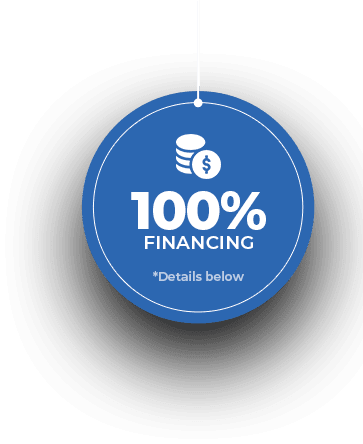
FINANCING FAQ’s
GENERAL FAQ’s
FINANCING – FAQ’s
A home improvement loan is a type of loan that can be used to finance renovations, repairs, or additions to your home. Home improvement loans can be unsecured or secured, and they typically have fixed interest rates and terms.
There are several different types of home improvement loans, including:
Personal loans: These are unsecured loans that can be used for any purpose, including home improvements. Personal loans typically have higher interest rates than other types of home improvement loans, but they may be easier to qualify for.
Home equity loans: These loans use your home’s equity as collateral. Home equity loans typically have lower interest rates than personal loans, but you may need to have a high credit score to qualify.
HELOCs (home equity lines of credit): These loans also use your home’s equity as collateral, but they offer a revolving line of credit that you can draw on as needed. HELOCs typically have lower interest rates than home equity loans, but you may need to have a high credit score to qualify.
203(k) loans: These loans are offered by the Federal Housing Administration (FHA) and can be used to finance both home repairs and renovations. 203(k) loans have lower interest rates than other types of home improvement loans, but they have stricter eligibility requirements.
The eligibility requirements for home improvement loans vary depending on the type of loan you choose. However, most lenders will require you to have a good credit score and a steady income. You may also need to provide proof of the value of your home and the estimated cost of the improvements you want to make.
The amount you can borrow for a home improvement loan will depend on the type of loan you choose, your credit score, and the value of your home. Personal loans typically have loan limits of $20,000 to $50,000, while home equity loans and HELOCs can have loan limits of up to $100,000 or more.
Home improvement loans can be a great way to finance the renovations you want to make to your home. However, there are some pros and cons to consider before you apply for a loan.
Pros:
Home improvement loans can provide you with the money you need to make the improvements you want.
Home improvement loans typically have fixed interest rates, so you know what your monthly payments will be.
Home improvement loans can help you increase the value of your home.
Cons:
Home improvement loans can be expensive.
Home improvement loans can add to your debt load.
Home improvement loans may not be available to everyone.
How do I choose the right home improvement loan for me?
The amount of money you need to borrow
The interest rate and terms of the loan
Your credit score
The eligibility requirements of the loan
It’s important to compare different home improvement loans before you apply. You can use online resources to compare interest rates, terms, and eligibility requirements. You should also talk to a lender to get more information about the different types of home improvement loans available.
There are a few risks associated with home improvement loans, including:
You may not be able to afford the monthly payments.
The value of your home may not increase enough to cover the cost of the loan.
You may default on the loan, which could damage your credit score.
It’s important to carefully consider the risks before you apply for a home improvement loan. You should make sure you can afford the monthly payments and that the improvements you want to make will increase the value of your home.
Have other questions?
Contact the Quality First Home Improvement Team at







